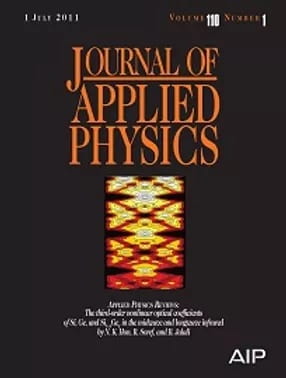News & Announcements
News
RF Communication and Sensing in Harsh Environments
On August 19th, we celebrated the milestone of our 2007 article in Nature Photonics, which marked the debut of the dielectric RF receiver. The pioneering RF receiver incorporates a ceramic RF antenna with an electrooptic sensor. The absence of any metal or electronic...
Jalali-Lab Delivered a Successful Academic Lecture on PhyCV at Qualcomm
Professor Bahram Jalali along with the Ph.D. students Yiming Zhou and Callen MacPhee delivered a successful academic lecture on PhyCV at Qualcomm entitled "Low-complexity image processing algorithm for Autonomous Driving using Physics-AI Symbiosis" Abstract:...
Jalali Lab Open-Sources VEViD for Realtime Low-Light Enhancement of High Resolution Video
We are happy to announce the release of our new physics-inspired low-light image enhancement algorithm VEViD to PhyCV. VEViD, or Vision Enhancement via Virtual Diffraction and Coherent Detection, was recently introduced in a publication in eLight. The algorithm...
Introducing VEViD: Realtime Low-Light Enhancement Algorithm Inspired by Physics
We are proud to introduce a powerful low-light enhancement algorithm, VEViD. It builds on more than two decades of research in optical physics in our laboratory and has direct applications in augmented reality, night-time driving, biology, and space exploration. The...
“Physics-AI Symbiosis”: How Physics and Artificial Intelligence Converge
Check out our latest publication entitled "Physics-AI Symbiosis" that just appeared as an invited paper in Machine Learning: Science and Technology! As a mix of perspective and review, the paper explores emerging ideas in which physics is blended with AI to extend the...
Jalali-Lab Open-sources PhyCV: The First Physics-inspired Computer Vision Library
We are happy to announce the release of the first Physics-inspired Computer Vision Library: PhyCV. PhyCV has a new class of computer vision algorithms that emulates the propagation of light through a physical medium with natural and engineered diffractive properties...
Jalali-Lab Open-Sources Code for Physics-Inspired Algorithm for Feature Extraction in Digital Images
We are happy to announce that we have made public the code for our latest physics-inspired algorithm which detects edges and their orientations in digital images at various scales. The algorithm, called PAGE, is based on the diffraction equations of optics and...
Professor Bahram Jalali Elected to the National Academy of Engineering
Professor Bahram Jalali has been elected to the National Academy of Engineering for his contributions to silicon photonics, high time-resolution scientific instruments, and biomedical imaging. For details, please refer to the official announcement from Samueli School...
Celebrating a Successful “AI and Optical Data Science Conference” at Photonics West 2022 Jalali-Lab
We are pleased to report a successful AI and Optical Data Science conference last week in San Francisco. This is a symposium we organize every year at the SPIE Photonics West, the largest optics conference in North America. Despite the pandemic, the sessions were well...
Celebrating Jalali-Lab’s 30-year anniversary in Silicon Photonics
Milestones in Silicon Photonics by the Jalali-Lab
Announcements

Undergraduate researcher Nora Brackbill

Undergraduate researcher Rebecca Brown

Postdoctoral scholar Keisuke Goda

2012 Aron Kressel Award

2012 Distinguished Engineering Achievement Award

2011-2012 Electrical Engineering Department's Distinguished Ph.D. Dissertation Award

Kam Yan Hon's paper
Kam Yan Hon’s paper titled “The Third-Order Nonlinear Optical Coefficients of Si, Ge, and Si(1-x)Ge(x) in the midwave and longwave infrared” has been selected to be on the cover of Journal of Applied Physics. Congratulations!
Using a combination of semiconductor theory and experimental results from the scientific literature, we have compiled and plotted the key third-order nonlinear optical coefficients of bulk crystalline Si and Ge as a function of wavelength (1.5-6.7 um for Si and 2.0-14.7 um for Ge).

SPIE Scholarship
Ali Fard wins SPIE Scholarship. This award recognizes his academic and research excellence in the field of optics and photonics. Congratulations!

